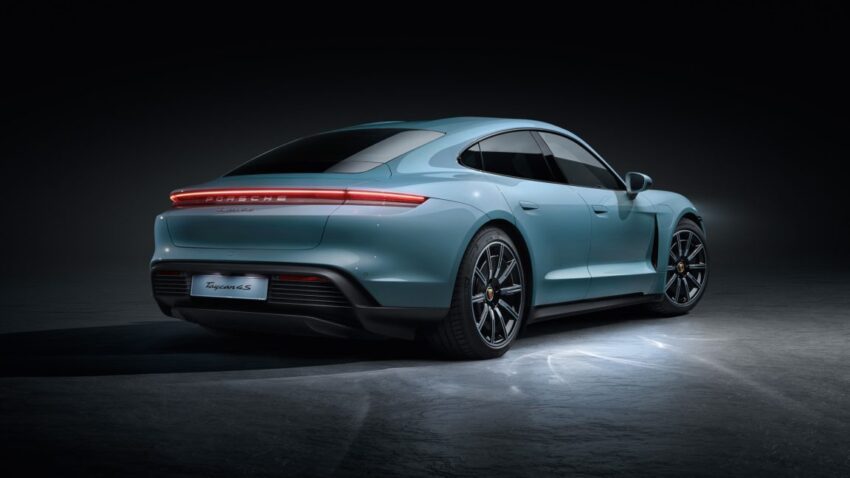
porsche does u-turn on electric vehicles will Porsche has announced a significant shift in its strategy, indicating a renewed focus on gasoline engines while scaling back its electric vehicle ambitions.
porsche does u-turn on electric vehicles will
Leadership Changes and Strategic Shifts
Michael Leiters, who will assume the role of CEO at Porsche in January, has long been a skeptic of electric vehicles (EVs), particularly in the luxury segment. His previous comments, made while he was the chief executive of British supercar manufacturer McLaren, highlighted his concerns regarding the viability of battery-powered motors for high-performance vehicles. “The technology isn’t ready,” Leiters stated in an interview with the Financial Times late last year. He emphasized that electric vehicles often lack the emotional thrill associated with traditional combustion engines and tend to depreciate more quickly.
This skepticism comes at a pivotal moment for Porsche, a brand synonymous with high-performance sports cars. The company has been navigating the complex landscape of automotive electrification, which has gained momentum in recent years due to regulatory pressures and shifting consumer preferences. However, Leiters’ appointment signals a potential pivot back to the roots of the brand, focusing on the visceral driving experience that has defined Porsche for decades.
The Current State of Electric Vehicles in the Automotive Industry
The automotive industry has been undergoing a seismic shift towards electrification, driven by environmental concerns and government mandates aimed at reducing carbon emissions. Major manufacturers have committed substantial resources to develop electric vehicles, with many planning to phase out internal combustion engines entirely in the coming decades. For instance, companies like Volkswagen, Ford, and General Motors have all announced ambitious electric vehicle strategies, aiming to capture a share of the growing EV market.
Despite these trends, the transition has not been without challenges. Issues such as battery supply chain constraints, charging infrastructure inadequacies, and consumer hesitance toward fully electric vehicles have complicated the rollout of EVs. Furthermore, the luxury segment, which includes brands like Porsche, faces unique hurdles. High-end consumers often prioritize performance, driving dynamics, and brand heritage—elements that are traditionally associated with gasoline engines.
Market Dynamics and Consumer Preferences
Consumer preferences in the luxury automotive sector are particularly nuanced. While there is a growing interest in sustainability, many luxury buyers remain attached to the performance characteristics of gasoline engines. The sound, feel, and overall driving experience of a traditional sports car are difficult to replicate with electric motors, which can lead to a disconnect for some enthusiasts.
Leiters’ comments reflect a broader sentiment among certain segments of the luxury market. The emotional connection to a vehicle is paramount for many buyers, and the unique characteristics of combustion engines play a significant role in that connection. As a result, Porsche’s decision to refocus on gasoline engines may resonate with its core customer base, who value the brand’s heritage and performance pedigree.
Porsche’s Strategic Realignment
In light of these considerations, Porsche is recalibrating its investment strategy. The company plans to divert resources away from electric vehicle development and instead invest in enhancing its gasoline engine lineup. This shift is not merely a reaction to market conditions but also a strategic decision aimed at revitalizing the brand’s identity and ensuring its long-term viability in a competitive landscape.
Leiters’ leadership will likely emphasize the development of high-performance gasoline engines that align with Porsche’s brand ethos. This could involve innovations in hybrid technology, where electric motors complement traditional engines, providing a balance between performance and efficiency. Such a strategy would allow Porsche to maintain its performance credentials while also addressing environmental concerns through improved fuel efficiency and reduced emissions.
Implications for the Automotive Landscape
Porsche’s pivot back to gasoline engines could have broader implications for the automotive industry. As one of the leading luxury sports car manufacturers, Porsche’s decisions may influence other brands within the segment. If Porsche finds success in revitalizing its gasoline engine offerings, it could encourage other manufacturers to reconsider their electric-only strategies, particularly in the high-performance market.
Moreover, this shift may also affect consumer perceptions of electric vehicles. If high-end brands like Porsche prioritize gasoline engines, it could signal to consumers that electric vehicles may not yet be the optimal choice for performance-oriented driving. This could slow the adoption of EVs among luxury buyers, potentially impacting overall market dynamics.
Stakeholder Reactions
The announcement has elicited a range of responses from stakeholders within the automotive industry. Analysts and industry experts have expressed mixed feelings about Porsche’s strategic realignment. Some view it as a pragmatic response to the current limitations of electric vehicle technology, while others see it as a potential misstep in an increasingly electrified market.
Environmental advocates have raised concerns about the implications of Porsche’s renewed focus on gasoline engines. The automotive industry is under increasing scrutiny to reduce its carbon footprint, and a shift back to combustion engines may be seen as a step backward in the fight against climate change. Critics argue that manufacturers must prioritize sustainable practices and invest in electric vehicle technology to meet future regulatory requirements and consumer expectations.
Future Prospects for Porsche
Looking ahead, Porsche’s future will depend on its ability to balance its heritage with the demands of a changing market. While the company’s decision to focus on gasoline engines may resonate with its traditional customer base, it must also navigate the evolving landscape of automotive electrification. The challenge will be to innovate within the gasoline engine space while remaining responsive to the growing demand for electric vehicles.
As the automotive industry continues to evolve, Porsche’s strategic decisions will be closely watched. The company’s ability to adapt to market changes while staying true to its brand identity will be crucial in determining its long-term success. Whether this shift will ultimately benefit Porsche in the competitive luxury automotive market remains to be seen, but it undoubtedly marks a significant moment in the company’s history.
Conclusion
Porsche’s decision to refocus on gasoline engines under the leadership of Michael Leiters represents a notable departure from the prevailing trend of electrification in the automotive industry. As the company navigates this strategic shift, it will be essential to balance the demands of performance-oriented consumers with the need for sustainable practices. The coming years will reveal whether this pivot will reinvigorate Porsche’s brand identity or pose challenges in an increasingly electrified market.
Source: Original report
Was this helpful?
Last Modified: October 23, 2025 at 8:38 pm
2 views















